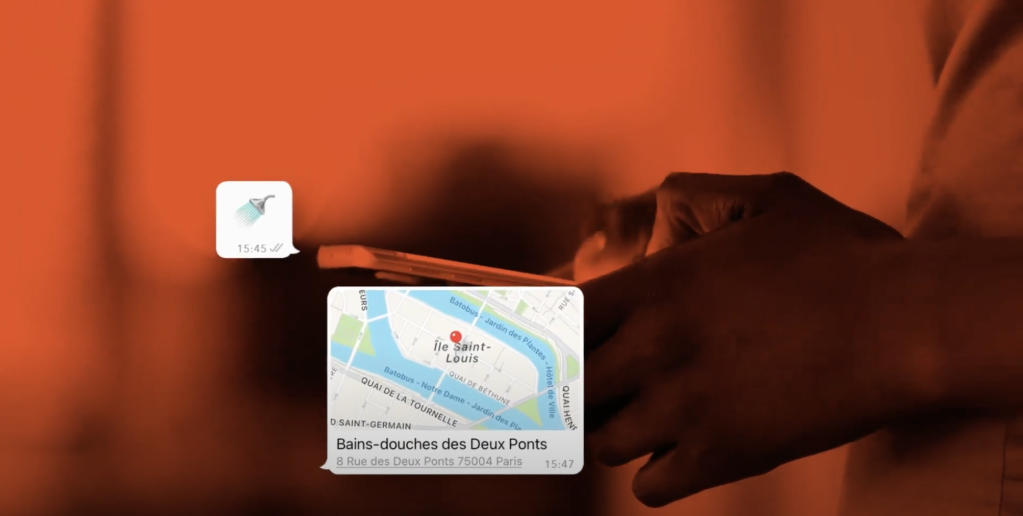Emojis to send on WhatsApp to find the nearest hospital, shelter, or receive a hot meal: this is what the 505 Migrants discussion platform, launched last week, offers. A tool intended to compensate for the lack of information from which exiles on the street suffer.
Take a shower, eat a hot meal or take care of themselves: basic needs that exiles on the street do not always have access to. In question, often? A lack of information. In order to help them, the France Terre d’Asile and Watizat associations provide them with a free discussion space on WhatsApp, 505 Migrants. To access it, you have to flash the QR code or enter the phone number listed on the flyers distributed to migrants in recent weeks in Paris. A targeted poster campaign in places in the capital frequented by exiles was also organised.
Once the conversation is open, a selection of emojis is offered to the user. It is then enough to send the one which corresponds to its needs. For example, if the “shower” drawing is sent, 505 Migrants immediately transmits the coordinates of the nearest corresponding structure, the user’s message being geolocated. The “plate” emoji, or any symbol related to food, refers the person to an association, a place of distribution of meals, or even a store that gives away unsold products.
Please note that 505 Migrants only works on the exchange of emojis and addresses. It is not possible to send a text message on the conversation, or to call the number directly.
“Everything is confused in my head”
For Théa Drogrez, coordinator at Watizat, the use of emojis serves first and foremost to “overcome the language barrier”. “Even if the information reaches exiles in need, it is often understanding that is the problem. Most of the guides that are distributed to them or the websites that they consult are in French, explains For an allophone migrant or an illiterate person, getting help quickly becomes very complicated, if not impossible.”
The emojis were also designed for exiles who, even if they have no difficulty in French at first, no longer feel able to ask for help. “The great precariousness in which these people live generates a lot of anxiety and loss of bearings. As a result, writing an email or formulating a request that requires explanations becomes difficult, affirms Théa Drogrez. During a raid, an exile told us moreover assured that he was unable to read a small booklet, which had been given to him by an association. He told us that he was ‘exhausted’. That ‘everything was confused in [sa] head’.”

Issues that affect a large majority of migrants, regardless of their country of residence. In the Netherlands, the “Refugee Friend” application allows users to find on a map people willing to help them with accommodation or food, care or transport.
>> To (re)read: In the Netherlands, launch of an application for migrants
In Paris, 505 Migrants currently lists about thirty addresses. But the number is subject to change. “We would like to refine our proposals, says Théa Drogrez. And offer, for example, in a few months, accommodation dedicated to women, families, or minors.”
*The 505 Migrants platform is accessible at this number: +33 7 56 79 85 05.
–


